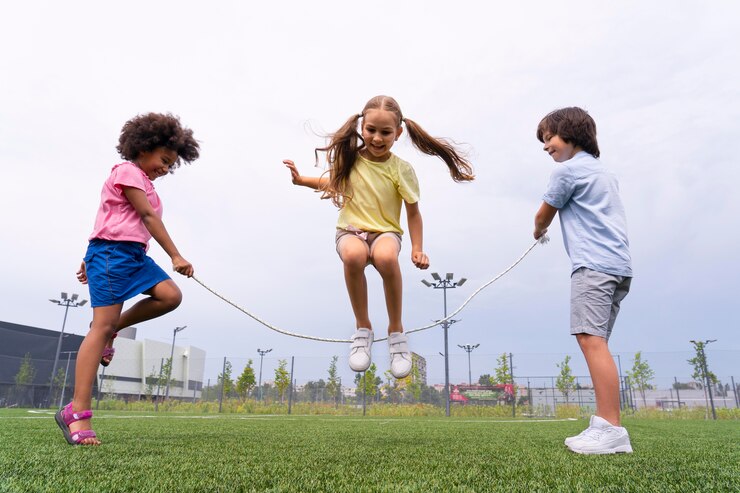Discovering the Power Within: The Importance of Nurturing Intrapersonal Relationships in Children
 Intrapersonal Relationships in Children: Cultivating kids’ intrapersonal bonds empowers growth, resilience, and self-awareness.
Intrapersonal Relationships in Children: Cultivating kids’ intrapersonal bonds empowers growth, resilience, and self-awareness.
In a world that is becoming increasingly fast-paced and connected, it is easy for children to overlook the importance of introspection and self-discovery. However, nurturing intrapersonal relationships is vital for their emotional well-being and personal growth. By understanding their own emotions, thoughts, and values, children can develop resilience, empathy, and a strong sense of self. In this article, we delve into the power of introspection and how it influences children’s overall development. We explore the ways in which parents, caregivers, and educators can encourage self-reflection and help children build a strong intrapersonal foundation. From fostering open communication to teaching mindfulness and self-compassion, we provide practical strategies to guide children on their journey of self-discovery. By nurturing intrapersonal relationships, children become more in tune with their emotions, gain a better understanding of their unique strengths and weaknesses, and develop the confidence to overcome challenges. Join us as we uncover the importance of cultivating self-awareness in children and equip them with the tools they need to navigate the complexities of life with resilience and authenticity.
Understanding Intrapersonal Relationships in Children
Intrapersonal relationships refer to the connection an individual has with themselves. It encompasses how they perceive, understand, and interact with their own thoughts, feelings, and behaviors. Understanding intrapersonal relationships in children involves recognizing their ability to introspect, identify emotions, and develop a sense of self-awareness. This self-awareness forms the foundation for healthy emotional regulation and personal growth.
 The Importance of Nurturing Intrapersonal Relationships
The Importance of Nurturing Intrapersonal Relationships
Nurturing intrapersonal relationships in children is crucial for their holistic development. When children have a strong sense of self and are in touch with their emotions, they are better equipped to navigate life’s challenges. They develop resilience, empathy, and a positive self-image, which are essential for building healthy relationships with others.
The Impact of Intrapersonal Relationships on Child Development
Intrapersonal relationships significantly influence various aspects of child development. Children who possess strong intrapersonal skills tend to have higher self-esteem, better emotional regulation, and improved problem-solving abilities. They are also more likely to exhibit empathy and understanding towards others, fostering positive social interactions and relationships.
Strategies for Fostering Healthy Intrapersonal Relationships in Children
There are several strategies that parents, caregivers, and educators can employ to foster healthy intrapersonal relationships in children. These include promoting self-reflection through journaling or guided discussions, teaching mindfulness and self-compassion techniques, encouraging emotional expression, and providing opportunities for independent decision-making and problem-solving (Intrapersonal Relationships in Children).
 The Role of Parents in Nurturing Intrapersonal Relationships
The Role of Parents in Nurturing Intrapersonal Relationships
Parents play a fundamental role in nurturing their children’s intrapersonal relationships. By creating a supportive and nurturing environment at home, parents can encourage open communication, validate their child’s emotions, and serve as positive role models for self-awareness and introspection.
The Role of Educators in Promoting Intrapersonal Relationship Skills
Educators also play a crucial role in promoting intrapersonal relationship skills in children. By incorporating activities that encourage self-reflection, emotional expression, and empathy into the classroom, educators can help students develop a deeper understanding of themselves and others.
The Benefits of Teaching Children Self-Awareness and Self-Reflection
Teaching children self-awareness and self-reflection yields numerous benefits. It enhances their emotional intelligence, improves their problem-solving abilities, and fosters a greater sense of empathy and understanding towards others. Additionally, self-aware children are better equipped to set and achieve personal goals, leading to increased self-confidence and motivation.
Activities and Exercises to Enhance Intrapersonal Relationship Skills
There are various activities and exercises that can be used to enhance intrapersonal relationship skills in children. These include journaling prompts, mindfulness exercises, guided visualization, role-playing scenarios, and reflective discussions. These activities provide opportunities for children to explore their thoughts, feelings, and values in a supportive and non-judgmental environment.
 Resources and Tools for Supporting Intrapersonal Relationship Development
Resources and Tools for Supporting Intrapersonal Relationship Development
There are many resources and tools available to support the development of intrapersonal relationships in children. These include books, worksheets, online courses, and therapeutic interventions designed to enhance self-awareness, emotional regulation, and self-reflection skills.
Conclusion: Investing in the Power Within
In conclusion, nurturing intrapersonal relationships in children is essential for their emotional well-being and personal growth. By fostering self-awareness, empathy, and resilience, children can navigate life’s challenges with confidence and authenticity. Parents, caregivers, and educators all have a role to play in supporting children on their journey of self-discovery. By investing in the power within, we empower children to lead fulfilling and meaningful lives.
Learn more about Intrapersonal Relationships in Children on our YouTube channel.
#intrapersonalrelationshipsinchildren #childdevelopment #intrapersonalrelationshipskillsinchildren




